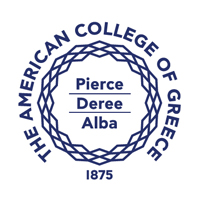When: Thursday, December 5, 2024 | 18:00
Where: Deree Faculty Lounge
Speaker: Petros Bouras-Vallianatos, Associate Professor of History of Science, University of Athens
Organized by: Institute for Hellenic Culture and the Liberal Arts
The seminar can also be attended via Zoom. The link will be provided on the day of the event and sent via email to those opting for online participation. After the seminar, refreshments and light snacks will be offered.
About the event
This talk aims to contextualize references to pharmacological ingredients from Asia in late antique and Byzantine medical works. References to these ingredients are divided into two main groups, including those most commonly found and in circulation by the second century, and those that are attested for the first time in late antique works. Systematic references to ingredients from the second group only start in the early 10th century when the gradual diffusion of Arabic pharmacological lore into Europe becomes apparent. In this endeavor, apart from medical sources, evidence from non-medical genres is also used, especially merchants’ accounts and archaeological evidence in an attempt to further contextualize these references beyond the documentary sources. The goal is to contribute to the debate over the value of theoretical versus practical materia medica.
For more information please contact us at [email protected]
About the speaker

Petros Bouras-Vallianatos studied Pharmacy (MPharm), University of Athens, and Classics & Ancient History (BA), King’s College London. He then read Late Antique & Byzantine History and Literature, University of Oxford (MSt), and took his doctorate in the History of Medicine at King’s College London (2015). Professor Bouras-Vallianatos has published extensively on late antique, Byzantine, and early Renaissance medicine and pharmacology, also offering editions and English translations of previously unpublished texts. His monograph, Innovation in Byzantine Medicine: The Writings of John Zacharias Aktouarios (c.1275-c.1330) (OUP, 2020), was awarded the Prize for Young Historians by the International Academy of the History of Science.
